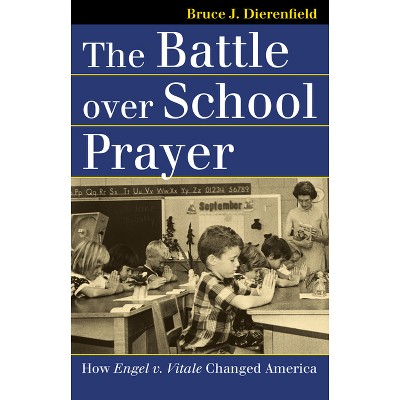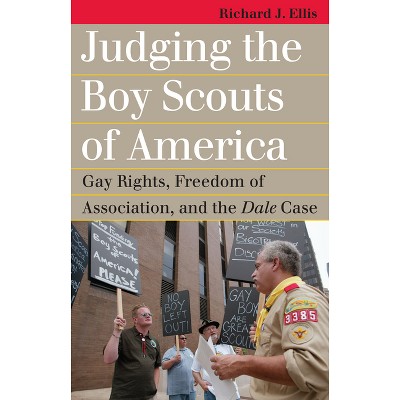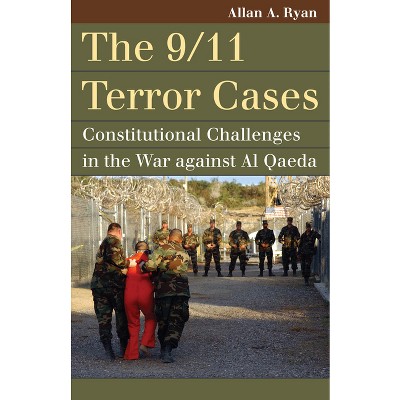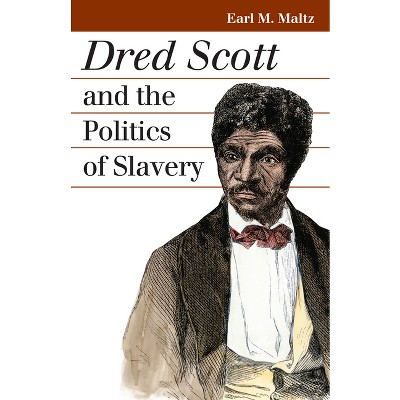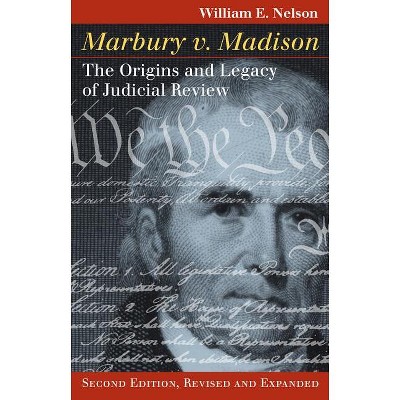Sponsored

Lochner V. New York - (Landmark Law Cases & American Society) by Paul Kens
In Stock
Sponsored
About this item
Highlights
- Lochner v. New York (1905), which pitted a conservative activist judiciary against a reform-minded legislature, remains one of the most important and most frequently cited cases in Supreme Court history.
- Author(s): Paul Kens
- 226 Pages
- Freedom + Security / Law Enforcement, Constitutional
- Series Name: Landmark Law Cases & American Society
Description
Book Synopsis
Lochner v. New York (1905), which pitted a conservative activist judiciary against a reform-minded legislature, remains one of the most important and most frequently cited cases in Supreme Court history. In this concise and readable guide, Paul Kens shows us why the case remains such an important marker in the ideological battles between the free market and the regulatory state.
The Supreme Court's decision declared unconstitutional a New York State law limiting bakery workers to no more than ten hours per day or sixty hours per week. By evoking its "police power," the state hoped to eliminate the employers' abuse of these workers. But the 5-4 majority opinion, authored by Justice Rufus Peckham and renounced by Justice Oliver Wendell Holmes, cited the state's violation of due process and the "right of contract between employers and employees," which the majority believed was protected by the Fourteenth Amendment.
Critics jumped on the decision as an example of conservative judicial activism promoting laissez-faire capitalism at the expense of progressive reform. As series editors Peter Hoffer and N.E.H. Hull note in their preface, "the case also raised a host of significant questions regarding the impetus of state legislatures to enter the workplace and regulate hours, wages, and working conditions; of the role of courts as monitors of the constitutionality of state regulation of the economy; and of the place of economic and moral theories in judicial thinking."
Kens, however, reminds us that these hotly contested ideas and principles emerged from a very real human drama involving workers, owners, legislators, lawyers, and judges. Within the crucible of an industrializing America, their story reflected the fierce competition between two powerful ideologies.
Review Quotes
"This is a welcome contribution. Kens places the Lochner decision firmly within its historical context and uses it as a window to an age. In the course of his narrative, Kens introduces the reader to an array of subjects including the noisome conditions in New York's tenement bakeries, Progressive reformers and Tammany Hall politics; nineteenth-century intellectual, economic, and labor history; and the lives and personalities of important jurists and lawyers."--Law and History Review
"This excellent and well-written analysis of economic and social developments in the early 20th century is recommended for readers interested in American history and law."--Library Journal
"Kens's masterful study of this case updates an revises his 1990 book on the same subject. The author places Lochner in its historical context, examining the forces leading to passage of the law in 1895, the politics of New York during this era, and the legal path leading to the Supreme Court decision."--Choice
"Kens has hit the mark. He treats complicated matters in ways that make them accessible to general readers and students and tells a terrific story. Teachers of constitutional and legal history will embrace this book."--Kermit Hall, author of The Magic Mirror: Law in American History
"An outstanding volume that deserves a wide audience. Virtually all observers agree that Lochner is one of the most important decisions ever rendered by the Supreme Court. It continues to cast a long shadow over constitutional thought despite the political triumph of the New Deal and the rejection of the liberty of contract doctrine in the late 1930s. Kens's balanced and judicious treatment should contribute greatly to the current dialogue over economic due process and judicial protection of property rights."--James W. Ely, Jr., author of The Guardian of Every Right: A Constitutional History of Property Rights
Shipping details
Return details
Trending Non-Fiction






